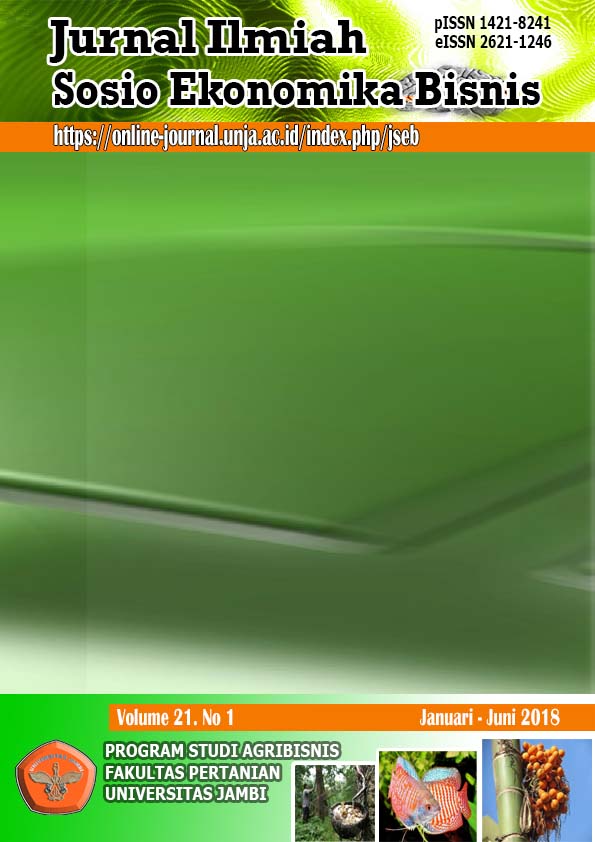FAKTOR-FAKTOR YANG MEMPENGARUHI LOYALITAS KONSUMEN PADA RESTORAN CEPAT SAJI DI KOTA BENGKULU
DOI:
https://doi.org/10.22437/jiseb.v21i1.5101Abstract
This study aims to is to find factors affecting loyalty consumers fast food restaurant in Bengkulu City seen from approach extended marketing mix (7p). Variable latent used in this research was extended marketing mix , demografy , customer satisfaction and loyalty consumers. A method of the sample collection with accidental where the sample collection on coincidence and the method of analysis the data used was structural equation modelling (SEM). The method for data analysis was Structural Equation Modeling to examine the causal relationship between observed variables. This study uses two-stage method, where first phased measurement Confirmatory Factor Analysis (CFA) and the second stage measurement was Second Order Confirmatory Factor Analysis (CFA-2). From the Googness Of Fit (GOF) 1 a gauge that indicates match a less well, 5 size gof showing match quite good (marginal fit) and 10 size gof showing match the best good fit. So that it can be concluded that match a whole model is good. The final result of this study shows the variables that make up the extended marketing mix is ​​product, price, place, physical evidence and process where this variable has a significant effect on loyalty both direct relationship and consumer satisfaction variable as Intervening variable. While the demographic variables have no significant effect on loyalty variable directly or indirect relationship with satisfaction as intervening variable.
Keywords: Loyalty, Extended Marketing Mix, SEM, CFA and GOF
Downloads

Downloads
Published
Versions
- 2018-05-23 (1)
- 2018-05-23 (1)


